RESEARCH
(Photo courtesy of TC’s Transformative Learning Technologies Lab)
Research conducted at TC sheds new light on engaging girls in science and technology education; improving youth media literacy; poverty in COVID-era America; physical therapy to treat Huntington’s disease; YouTube as a platform to educate lay audiences about COVID; strategies for combating food insecurity during the pandemic and beyond; technology to assist children who have severe cerebral palsy; reproductive identity as a focus in sex education; and the components of sustainable peace.
Education
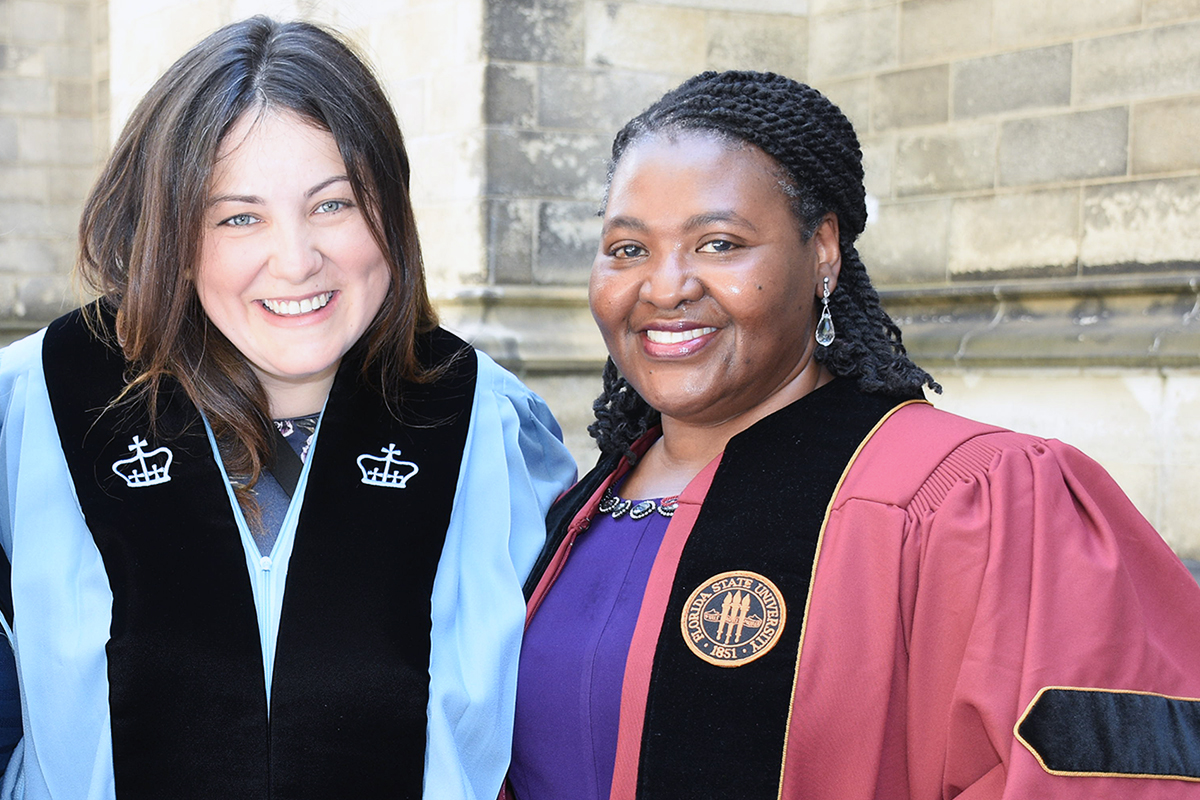
FRAMEWORK OF INCLUSION Alumna Lauren Serpagli and faculty member Felicia Mensah argue that current approaches to getting girls interested in STEM careers focus too narrowly on economic competitiveness. (Photo: TC Archives)
Teaching Science and Technology to Girls
A chapter co-authored by Felicia Mensah, Professor of Science Education, and her former TC doctoral student Lauren Serpagli (Ed.D. ’17, M.Ed. ’15, M.A. ’05), STEM Department Co-Chair at Dominican Academy High School on Manhattan’s Upper East Side, is featured in #February 11: Women & Girls in Science for Socio-Economic Sustainable Development, a new book published by the Royal Academy of Science International Trust. In their chapter, “Investing in Science and Technology Education for Shaping Society’s Future: Focusing on the Girls,” Mensah and Serpagli argue that current efforts to involve more women in STEM focus too narrowly on increasing economic competitiveness and call for “a framework of technology for social inclusion.”
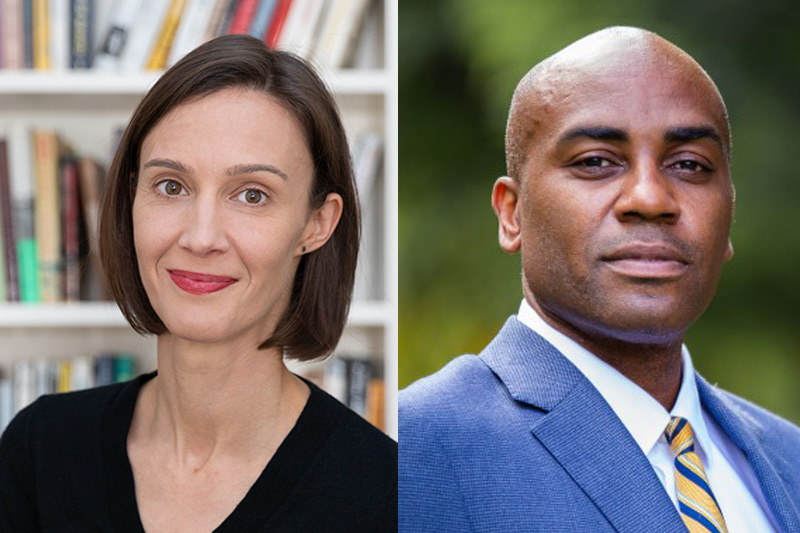
NARRATIVE TEAM Educating Harlem co-editors Ansley T. Erickson and Ernest Morrell (Photo: TC Archives)
The Untold Story of Harlem's Fight for Quality Education
In their new edited volume, Educating Harlem: A Century of Schooling and Resistance in a Black Community (Columbia University Press), Ansley T. Erickson, Associate Professor of History & Education Policy, and former TC faculty member Ernest Morrell (now at the University of Notre Dame) present the story of how Black people, through the medium of education and education reform, have both navigated within and sought to erase the lines of a neighborhood created in 1811 by a White politician, a White surveyor and a White lawyer. “The dominant discourse in the 1960s and 70s is White sociologists saying that Black communities don’t care about education, and that influences policy,” says Erickson, Co-Director of TC’s Center on History & Education. “But in Harlem and other cities, Black parents and students are constantly working to make education what they want it to be.”
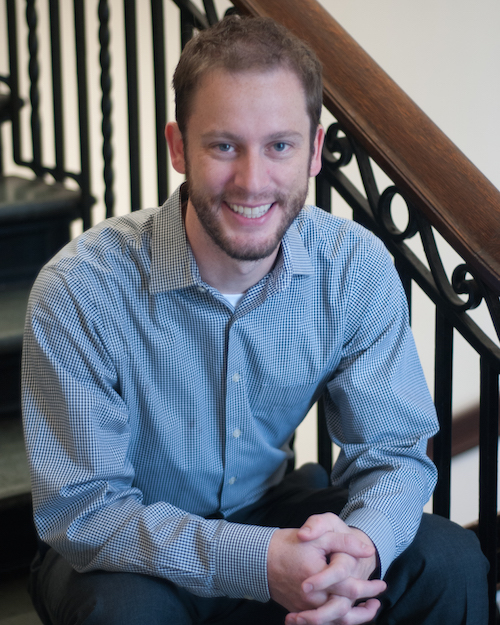
FILLING THE GAP Nathan Holbert aims to provide teachers with actionable information about what their students are learning. (Photo: TC Archives)
Teaching Data Analysis with Video Games
Beats Empire, a game co-developed by Nathan Holbert, Assistant Professor of Communication, Media & Learning Technologies Design, with National Science Foundation funding, positions youngsters as decision-makers in the music business to teach them about market trends and data analysis. During the COVID pandemic, “few tools exist to support teachers in determining how and what their students are learning,” Holbert, Director of TC’s Snow Day Learning Lab, recently told Filament Games. “Our project aims to fill that gap by providing teachers with a tool that will give actionable information about what their students are learning and with what they’re struggling.”

HIGH-STAKES GAME A TC team argues that gamifying the teaching of media literacy can better engage students — but the lessons are sobering.
Gamifying Media Literacy
An essay by a team of TC faculty members and students, published in the Harvard Kennedy School’s Misinformation Review, reports on research underlying LAMBOOZLED!, a teaching game they have developed to help young people become more astute consumers of information in print and online. “Given the need to cultivate youth news literacy skills in our age of misinformation, and with current initiatives not fully addressing these needs, games can be an effective approach to foster news literacy skills,” write Yoo Kyung Chang, Lecturer in Communication, Media & Learning Technologies Design; Ioana Literat, Assistant Professor in the same program; and students Joseph Eisman, Jonathan Gardner, Charlotte Price, Amy Chapman and Azsaneé Truss in “News Literacy Education in a Polarized Political Climate: How Games Can Teach Youth to Spot Misinformation.”
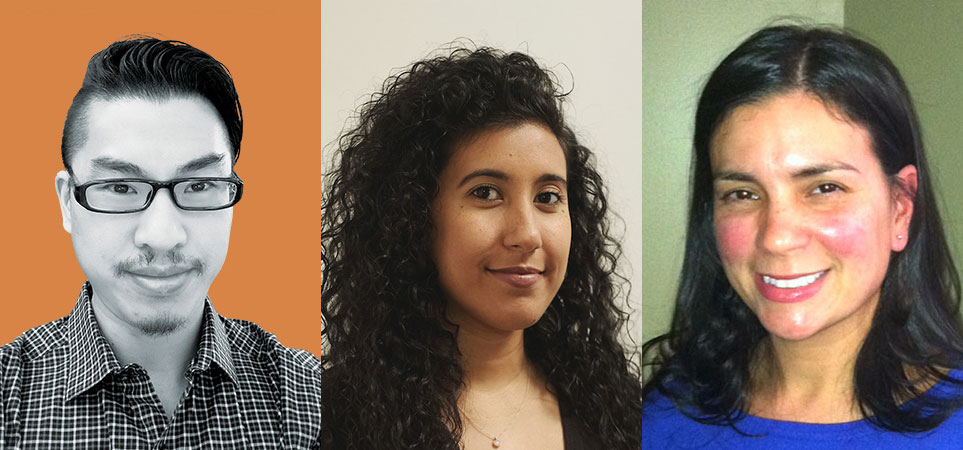
ON THE GROUND PERSPECTIVES Mariana Souto-Manning's book features contributions by eight New York City public school teachers, including TC alumnus Billy Fong and current doctoral students Karina Malik (center) and Jessica Martell. (Photos: TC Archives)
Blaming the Victims: The Rhetoric of "Educational Failure"
In the Pursuit of Justice: Students’ Rights to Read and Write in Elementary School, a new book from the National Council of Teachers of English (NCTE) edited by TC’s Mariana Souto-Manning, Professor of Early Childhood Education, makes the case that the “rhetoric of educational failure” in reports such as “A Nation at Risk” and undergirding federal legislation such as No Child Left Behind have narrowly defined literacy to reinforce White privilege and disenfranchise students of color and those typically labeled English language learners. Framed by two NCTE position statements, In the Pursuit of Justice includes essays by eight New York City public school teachers — including several TC instructors and alumni who have worked closely with Souto-Manning.
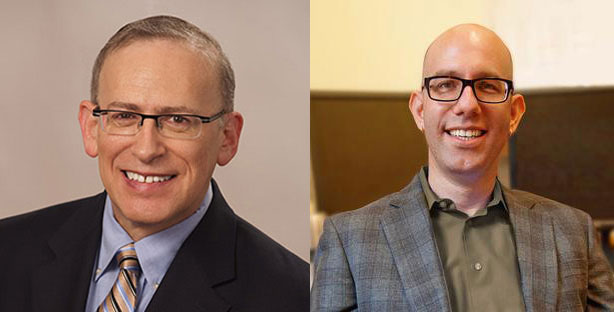
PROBING THE DIGITAL DIVIDE TC faculty members Aaron Pallas (left) and Oren Pizmony-Levy found that Americans believe the negative effects of remote schooling at home could be amplified by disparities in access to technology and by differences in parents’ ability to monitor their children’s learning at home. (Photos: TC Archives)
Americans Are Concerned about the Pandemic's Effect on Learning
A new survey by TC’s The Public Matters project shows that a substantial majority of Americans are concerned about the potential negative impacts of school-sponsored, online instruction during the pandemic. More than three-quarters of respondents said they are very or somewhat concerned about the negative impact of the coronavirus outbreak on the academic learning of schoolchildren. About seven in ten said they are very or somewhat concerned about the effect of school closings on students’ emotional and social development.

VOICE OF A COALITION Jessica Wolff, with CEE colleague Michael Rebell and doctoral student Ann LoBue, co-authored a new report on media literacy. (Photo: TC Archives)
A Call for New York State to Improve Media Literacy Education
A new report prepared by TC’s Center for Educational Equity (CEE), and issued by DemocracyReady NY, a coalition of civic and education organizations, urges New York State to take immediate steps to require media literacy education in all of its K–12 schools. The report, “Developing Digital Citizens: Media Literacy Education for ALL Students,” says the state has been remiss in failing to equip schools to help students meet existing media literacy education standards, particularly in districts that predominantly serve low-income students and students of color. Stressing that “the internet has become the new public square” and that “to be democracy ready, all students must be media literate,” it recommends that all schools be staffed with school library media specialists and that all districts be required to provide access to professional development for teachers around media literacy.

TEAM EFFORT Winning the new IES grants was the result of collaboration among faculty from several departments, including (clockwise from top left), Thomas Brock, Director of TC's Community College Research Center; Judith Scott-Clayton, Associate Professor of Economics & Education; Aaron Pallas, Arthur I. Gates Professor of Sociology & Education; and Sarah Cohodes, Associate Professor of Economics & Education. (Photos: TC Archives)
$6.3 Million in Grants For Doctoral Training and a Study of Work-Study
Teachers College receives two prestigious five-year grants from the federal Institute of Education Sciences (IES), totaling nearly $6.3 million. The grants were submitted and received through the College’s Community College Research Center. A $3.5 million IES predoctoral interdisciplinary research training grant will support doctoral training for a small group of selected Ph.D. students pursuing careers in applied research focused on post-secondary education. A $2.8 million IES research grant will fund the first-ever comprehensive evaluation of the Federal Work-Study program, one of the nation’s oldest student aid programs, which typically provides part-time employment to undergraduate, graduate and professional students with financial need. IES is the statistics, research and evaluation arm of the U.S. Department of Education.
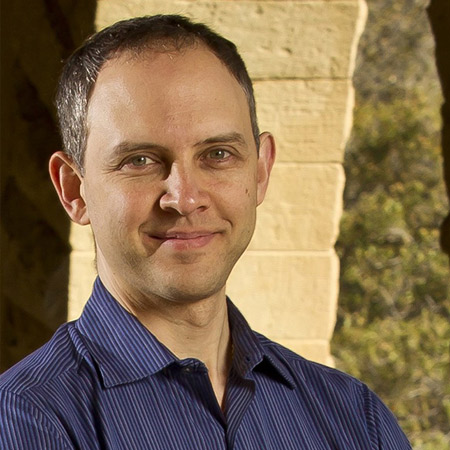
ALLOWING FOR THE WHAT-IF Paulo Blikstein has spent his career creating technologies that allow children to explore. (Photo: TC Archives)
Helping Young Science Students Model Their Own Theories
A team led by Paulo Blikstein, Associate Professor of Communication, Media & Learning Technologies Design, and Director of Teachers College’s Transformative Learning Technologies Lab, receives a three-year, $2 million National Science Foundation grant to fulfill the promise of the 2013 Next Generation Science Standards (NGSS) by creating computational tools that enable students to develop, test and compare their own ideas. Building on work by Blikstein, whose FabLearn program has brought digital fabrication and maker education to schools in more than 22 countries, the researchers will also work with classroom teachers to develop new science learning units.
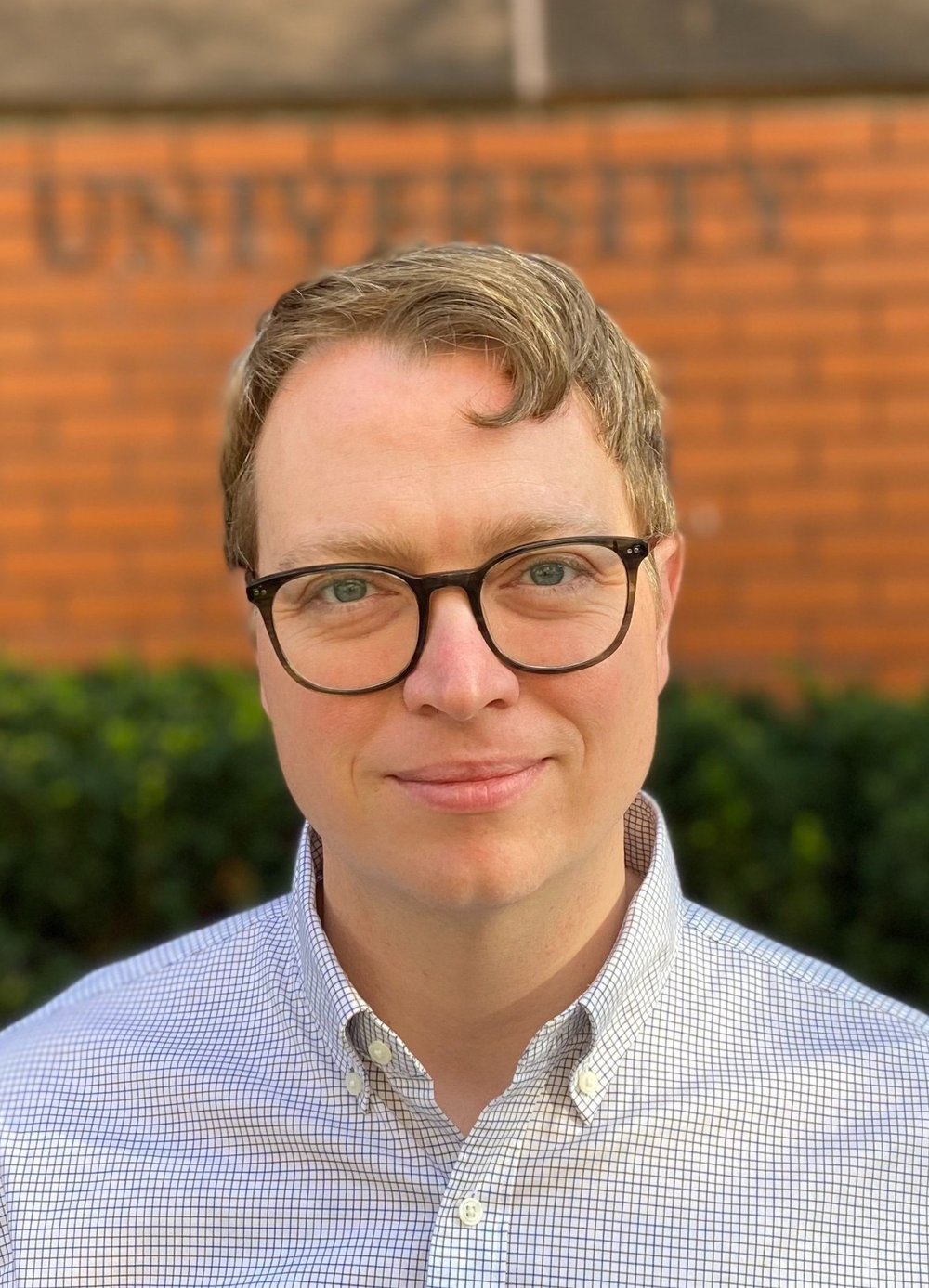
ASKING FOR I.D. Alex Eble explores how children form beliefs about their own ability, and how this affects their human capital development. (Photo: TC Archives)
Textbook Messaging: The Impact on Children's Sense of Ability
Alex Eble, Assistant Professor of Economics & Education at Teachers College, is co-recipient of an $884,205 grant from the federal Institute of Education Sciences to explore how messages about gender and race in elementary school textbooks can influence children’s beliefs in their own abilities and their subsequent educational decisions. Non-governmental sources will provide more than $133,000 in additional funds for the research. The two-year project by Eble and Anjali Adukia of the Harris School of Public Policy at the University of Chicago will build on current literature demonstrating that structural influences at the earliest stages can inform children’s beliefs about their own ability and that of others — beliefs that can influence educational achievement.
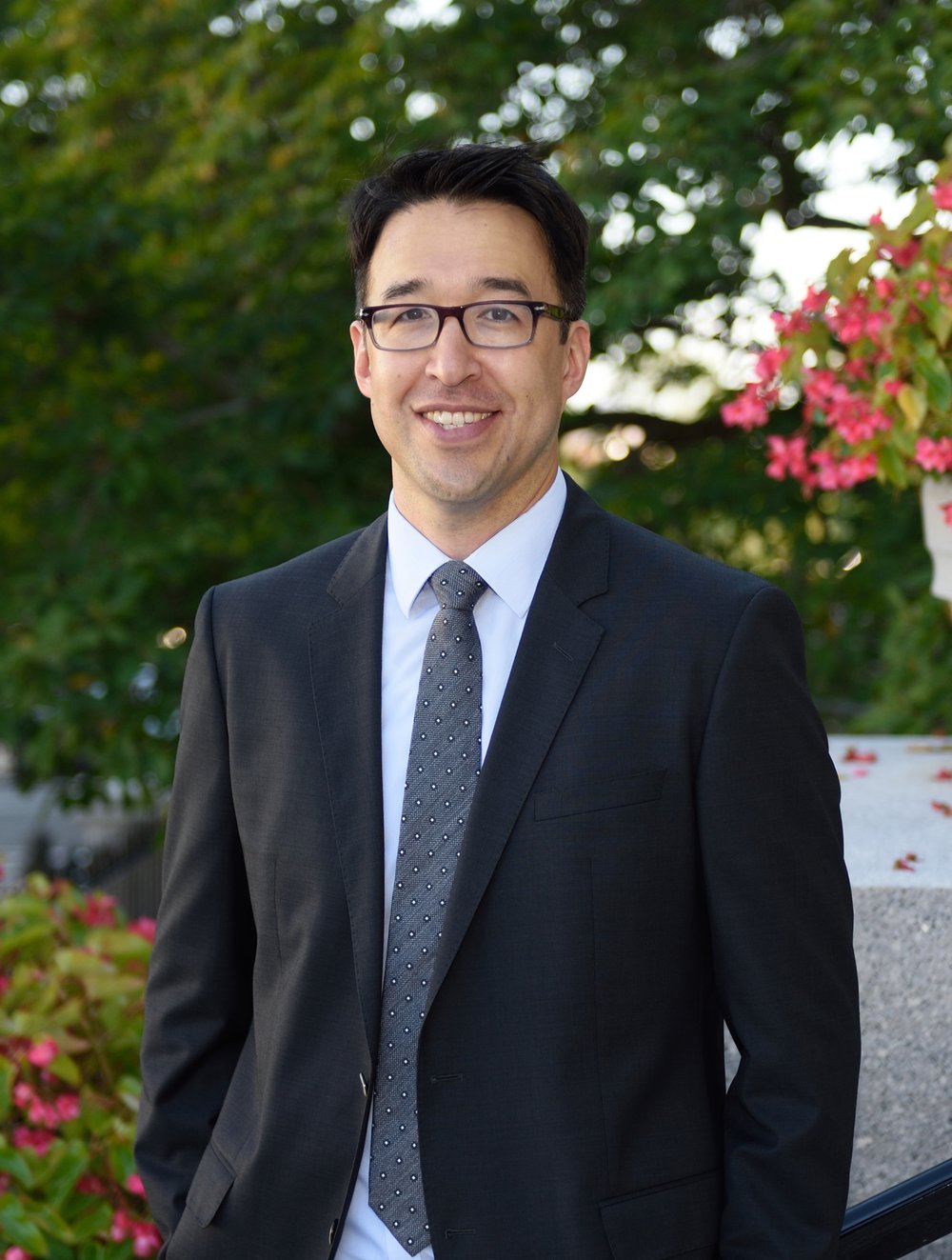
INFORMED PERSPECTIVE Teachers College economist Jordan Matsudaira served from 2013 to 2015 as Chief Economist on President Obama’s Council of Economic Advisers. (Photo: TC Archives)
COVID's Side Effects: Eight Million More Americans in Poverty
The number of people living in poverty in the United States has grown by 8 million since May, finds a new study co-authored by TC economist Jordan Matsudaira, Senior Research Scholar at TC’s Community College Research Center, and researchers at Columbia University’s Center on Poverty & Social Policy. The number had fallen by four million at the outset of the COVID pandemic because of the emergency CARES Act but grew after the expiration of the CARES Act’s unemployment supplement. The report also finds that “increases in monthly poverty rates have been particularly acute for Black and Hispanic individuals, as well as for children.” The authors recommend “additional income transfers” to “blunt further increases in poverty.”
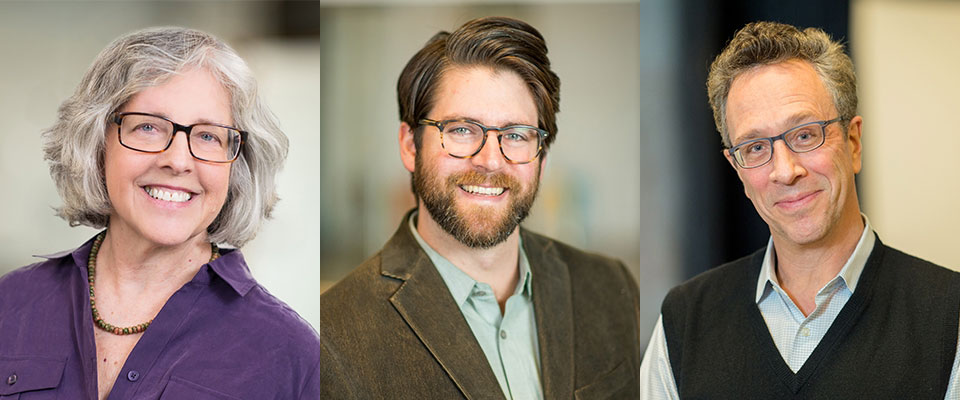
CUMULATIVE EFFORT CCRC researchers (from left, Elisabeth Barnett, John Fink and Davis Jenkins) built on CCRC’s “guided pathways” approach to prove the failures of dual enrollment. (Photos: TC Archives)
Why Dual Enrollment Isn't Benefiting Underserved Students
“The Dual Enrollment Playbook: A Guide to Equitable Acceleration for Students,” a new report by TC’s Community College Research Center (CCRC) and The Aspen Institute, finds that dual enrollment programs are increasing college enrollment and completion by giving K–12 students a head start on higher education or job preparation — but low-income and BIPOC students have far less access to such programs. The report, co-authored by CCRC’s Elisabeth A. Barnett, John Fink and Davis Jenkins, also finds that if colleges partner with K–12 schools to actively recruit BIPOC students and provide them with high-quality instruction and advising, they can close equity gaps in access and put high school students on a path to college and career success.
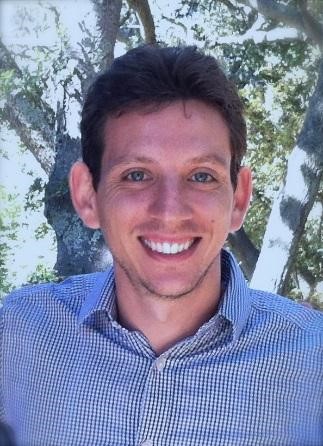
STAYING ON MESSAGE TC education economist Peter Bergman has designed a number of experimental interventions to improve students’ academic performance using text messaging. (Photo: TC Archives)
Using Mobile Phones to Overcome School Interruptions
A study co-authored by TC education economist Peter Bergman demonstrates that inexpensive mobile phone technology was successfully used to provide education to children in Botswana during the COVID pandemic last spring. Spotlighted by New York Times columnist Tina Rosenberg, the study of primary school-aged children in 4,500 families — published by The Centre for the Study of African Economies — provides some of the first experimental evidence on strategies to minimize the impact of the pandemic on education outcomes.
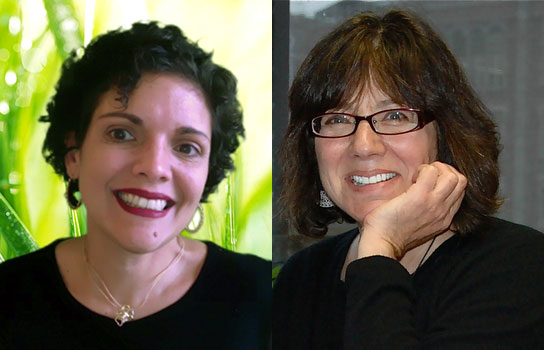
SETTING A NEW STANDARD Researchers Mariana Souto-Manning (left) of TC and Beverly Falk of City College CUNY. (Photos: TC Archives)
Redefining — and Practicing — High-Quality Early Learning
A year-long qualitative study of prekindergarten classrooms representing three different socioeconomic communities in New York City, co-authored by Mariana Souto-Manning, Professor of Early Childhood Education and Director of TC’s Early Childhood Education Program, illustrates seven principles of practice that offer an expanded definition for “high-quality early learning.” The principles recognize “the promise and possibility of children’s lives” and seek to ensure that “the growing numbers of multilingual children and children of color in our country can see themselves represented in their learning environments,” write the authors, led by Souto-Manning and Beverly Falk, an early childhood education expert at the School of Education, The City College of New York.
Health

A group led by TC's Lori Quinn recently published new guidelines in the journal Neurology for conducting physical therapy with people with Huntington's disease. (Photo: TC Archives)
New Guidelines for Physical Therapy with Huntington's Disease
The Huntington Study Group — the world’s first and largest collaborative network of experts on Huntington’s disease — publishes “Clinical Recommendations to Guide Physical Therapy Practice for Huntington Disease” in the journal Neurology. The authors, led by TC’s Lori Quinn, Associate Professor of Movement Sciences & Kinesiology and Director of the College’s Neurorehabilitation Research Lab, find strong evidence to support aerobic exercise, alone or in combination with resistance training, to improve fitness and motor function; and supervised gait training to improve gait in persons with the hereditary, degenerative brain-based disorder, which generally manifests in people during mid-life. A genetic test can reveal inheritance of the condition, but no treatments stop or reverse the disease.
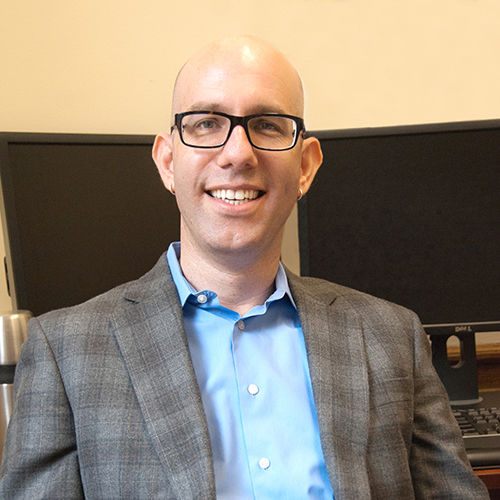
FOCUSING ON CREDIBILITY Pizmony-Levy calls "trust" a vague term. The survey instead measures credibility, defined as understanding of the virus, unselfish motivation and meriting a role in influencing policy. (Photo: TC Archives)
Most Credible on COVID: Healthcare Workers and Medical Scientists
The American public is largely united in viewing frontline healthcare providers and medical scientists as the most credible sources of information about COVID-19 and in believing they should wield the greatest influence on policy-making in response to the pandemic. So finds a new survey by The Public Matters: How Americans View Education, Health & Psychology, a public opinion project based at TC led by Oren Pizmony-Levy, Associate Professor of International & Comparative Education, and Aaron Pallas, Arthur I. Gates Professor of Sociology & Education. National elected officials, business leaders and religious leaders were viewed as least credible.
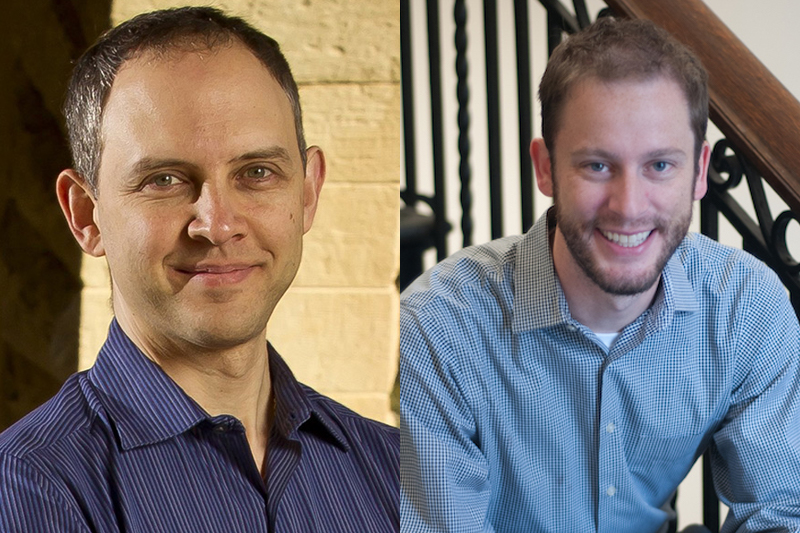
FREQUENT COLLABORATORS Faculty members Paulo Blikstein (left) and Nathan Holbert brought their student lab teams together and gave them the resources to make protective equipment. (Photos: TC Archives)
Protecting Doctors: A TC Team Creates a New COVID Shield
To aid doctors who perform such procedures as intubating COVID patients, a group of TC students and faculty members designs a protective, see-through box with armholes that can be placed over patients. They also find a manufacturer and distribute the boxes to hospitals in New York City, Chicago and Detroit. The team consists of Paulo Blikstein, Associate Professor of Communications, Media & Learning Technologies Design, Nathan Holbert, Assistant Professor in the same program, and doctoral students Sam Thanapornsangsuth and Yipu Zheng. Thanapornsangsuth, Zheng and other students who normally work in Holbert’s Snow Day Learning Lab — Nicola Law, Isa Correa, Biswajit Boity, Laura Bloch and Monica Chan — also launch Face Shields from Home, an effort to provide homemade equipment.

BUILDING A CASE Charles Basch and his team have published a series of studies suggesting that YouTube could play an enhanced role in delivering key public health messages to a lay audience — particularly regarding COVID-19. (Photo: TC Archives)
Using YouTube to Fight COVID
In papers published throughout spring and summer 2020, Charles Basch, TC’s Richard March Hoe Professor of Health & Education, and colleagues highlight YouTube’s potential to educate the public about COVID-19. They note that videos about COVID are widely viewed on YouTube, but that the most widely viewed videos rarely cover the key prevention behaviors on the U.S. Centers for Disease Control and Prevention website. They find that most YouTube videos have been uploaded by entertainers, that those videos garnered the majority of cumulative views on the topic and that COVID information on YouTube is pitched toward a lay viewership. And they argue that YouTube could be critical in securing “public willingness to be vaccinated.”
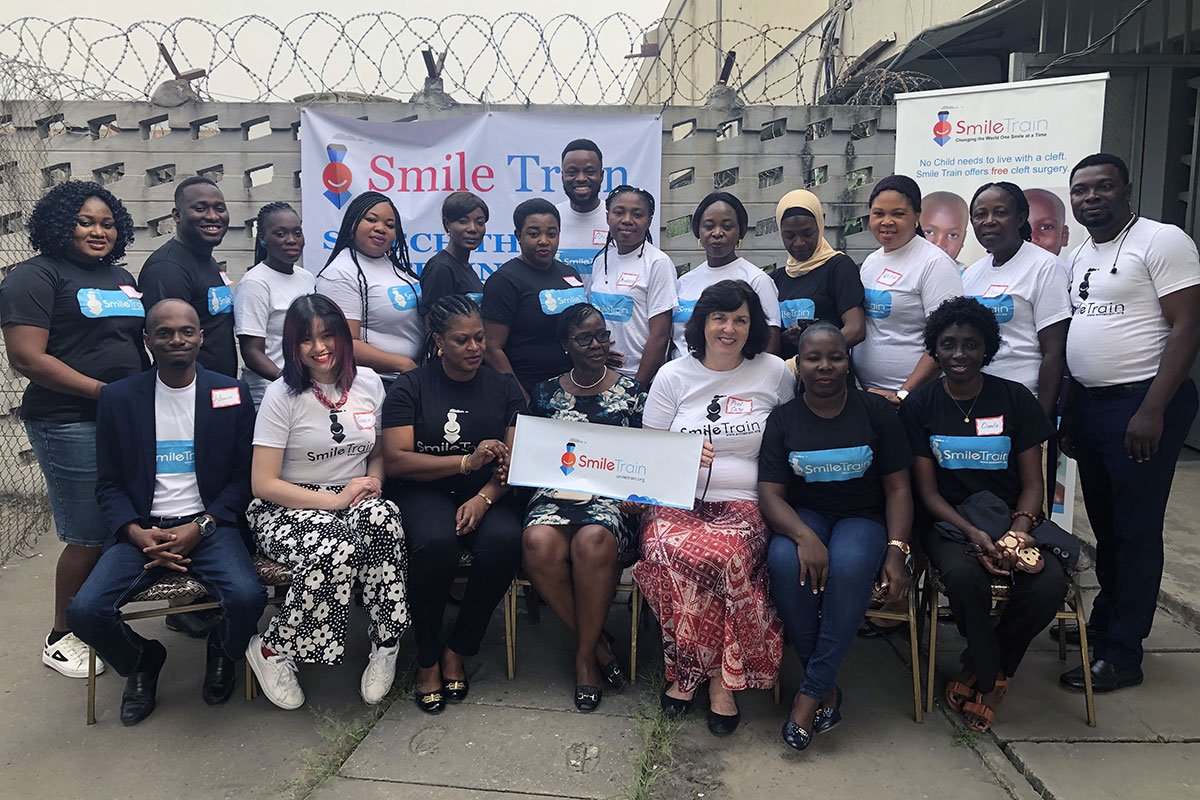
TC's Catherine Crowley (seated, third from right) with Dr. Deola Olusanya (seated, far right) at a January 2020 Smile Train training workshop in Nigeria. (Photo courtesy of Cate Crowley)
Repurposing Stethoscopes for Social Distance in Speech Pathology
To help children reconstruct speech patterns following cleft-palate surgery, speech-language pathologists need to “hear sounds and see how the speaker is forming them,” says Catherine Crowley, Professor of Practice in TC’s Communication Sciences & Disorders Program. That’s hard to do while maintaining social distancing and/or the speaker is muffled by a mask — but now Deola Olusanya, a Nigerian oral-maxillary facial surgeon, has devised a solution and Crowley is spreading the word. In a video on Crowley’s LEADERSproject YouTube channel, Olusanya demonstrates how to transform tubing and earpieces from disassembled stethoscopes into a tool that allows speech pathologists and patients to communicate at a safe distance.
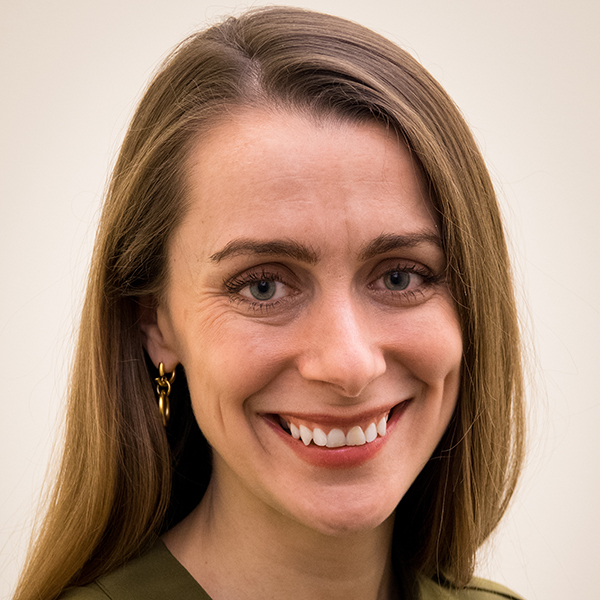
EQUITY FOCUS Julia McCarthy, Deputy Director of TC’s Tisch Food Center, and her fellow researchers “strongly urge equity to be placed at the forefront of decisions pertaining to school emergency food services.” (Photo: TC Archives)
Promoting Food Equity During COVID
A study of food distribution by the nation’s four largest urban school districts (New York City, Los Angeles, Chicago and Houston) last spring could help guide meal provision in future public health emergencies and in ongoing federal efforts to combat food insecurity. The study, co-authored by Julia McCarthy, Deputy Director of the Laurie M. Tisch Center for Food, Education & Policy, and published in The Journal of Urban Health, is among the first to address food security in the United States during the COVID-19 pandemic. A key focus is on ensuring that both children and adults have equitable access to healthy food during emergencies. Food-insecure youngsters are at increased risk for obesity and diabetes, risk factors associated with COVID hospitalizations.
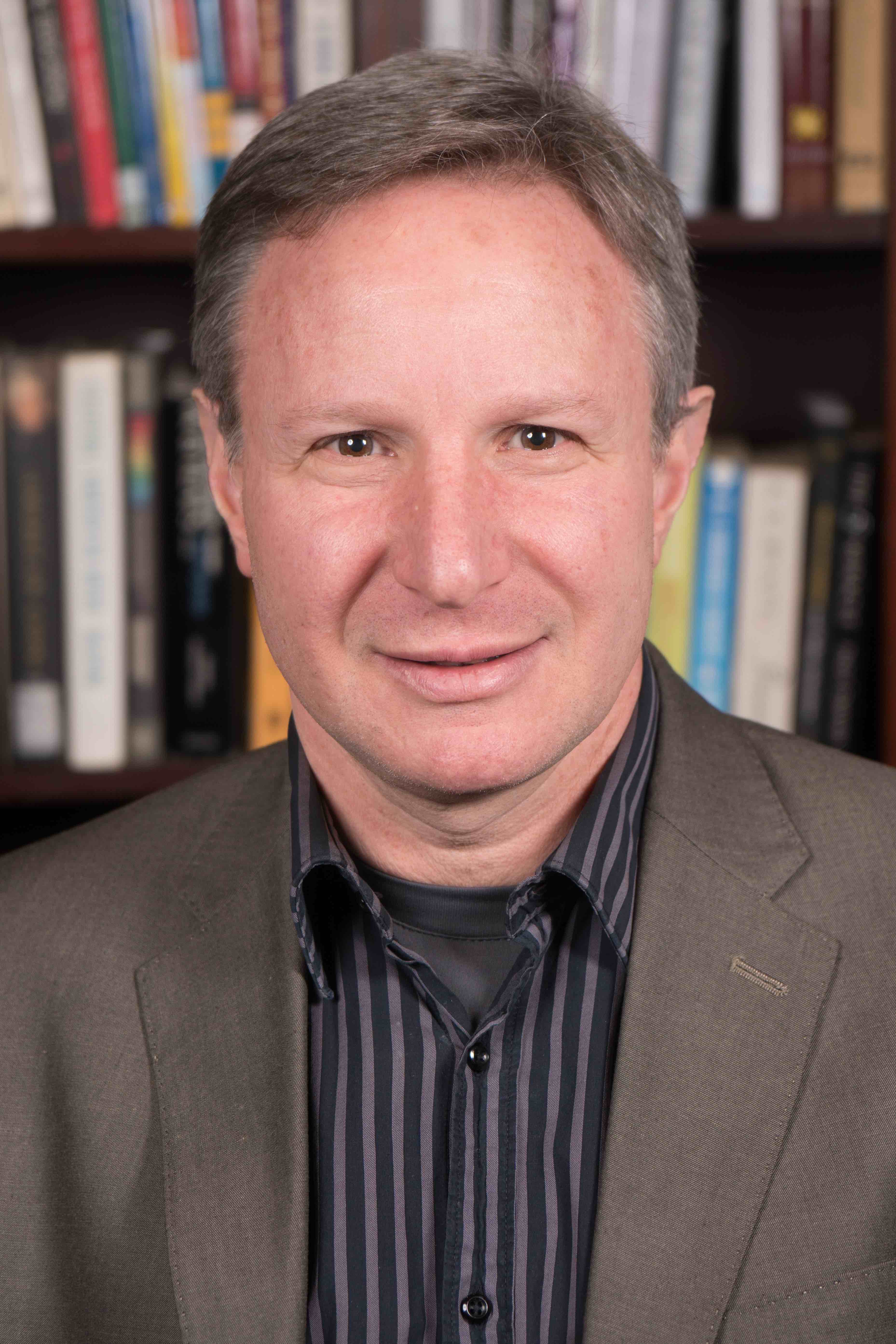
KEY PARTNER Andrew Gordon, TC Professor of Movement Sciences, has spent years developing new therapies that have helped children with cerebral palsy. (Photo: TC Archives)
Helping Children with Severe Cerebral Palsy Sit Up
Children with severe cerebral palsy (CP) often cannot sit up and/or fall forward if they try to move their heads or arms. In a preliminary study reported in Science Magazine, a robotic device created at Columbia University’s Fu Foundation School of Engineering and Applied Science with guidance from TC Professor of Movement Sciences Andrew Gordon — developer of therapies that have improved mobility for children with milder CP — enables children who lack “seated postural control” both to sit up and improve their upper body control. Gordon and researchers led by Columbia mechanical engineering professor Sunil Agrawal have received a $3 million, five-year National Institutes of Health grant to further refine and test the device.
Psychology
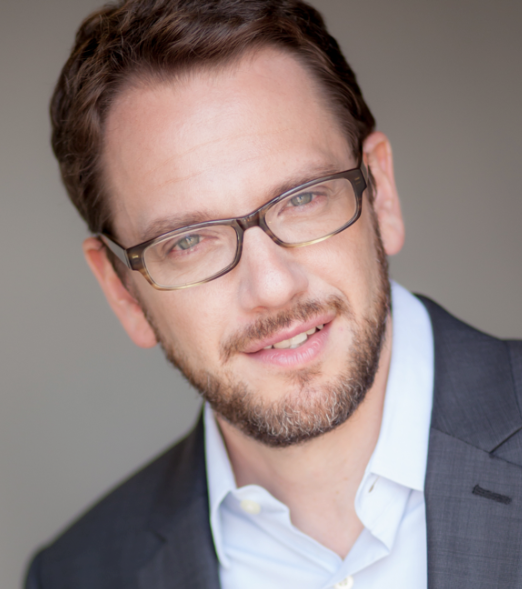
RESTORING A SENSE OF CONTROL In testing ERT, Mennin has found that stress levels are often higher in caregivers than in patients. (Photo: TC Archives)
A Brain-Based Treatment for COVID Anxiety
Douglas Mennin, Professor of Clinical Psychology, begins testing an abbreviated, online form of Emotional Regulation Therapy (ERT), a method he developed and honed, to help people suffering from elevated rumination, worry and distress related to COVID-19. Mennin’s study enrolls New Yorkers who are healthcare or essential workers, have contracted the illness, lost a loved one, lost employment, or are generally distressed over an increased sense of threat and decreased opportunities. The study particularly reaches out to individuals from low-income and communities of color, which have been disproportionately hit by COVID-19.
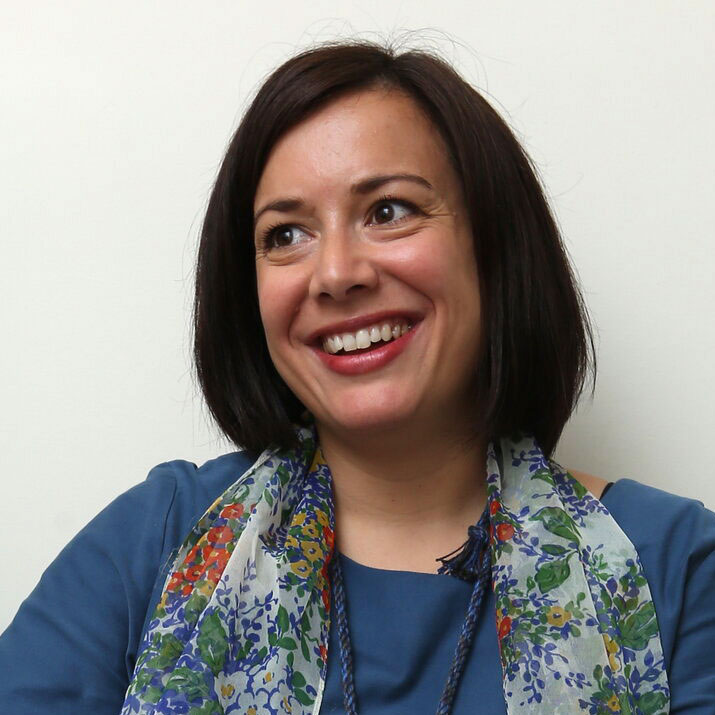
BRINGING COMPASSION Aurélie Athan's goal is to normalize discussion of decisions about having children by "taking it out of the shadows of fear and risk." (Photo: Bruce Gilbert)
The Case for "Reproductive Identity"
In her paper “Reproductive Identity: An Emerging Concept,” published in American Psychologist, Aurélie M. Athan, Research Professor in TC’s Department of Counseling & Clinical Psychology, argues that what she calls “reproductive identity” — how a person self-identifies when it comes to experiences related to the question of if, when and how to have children — plays a role in self-definition akin to that of age, race, gender, sexual orientation, ethnicity, ability, religion/spirituality and socioeconomic status. “While parenting used to be a given in most societies — an expected, perpetual consequence of heterosexual sex and an unquestioned life goal after the onset of puberty and marriage — it is now for the most part volitional,” writes Athan. “We need to have a much more open discussion and discovery process — first, of who a person would like to be in this space, and then by meeting them with the tools and decision-making processes to do that.”
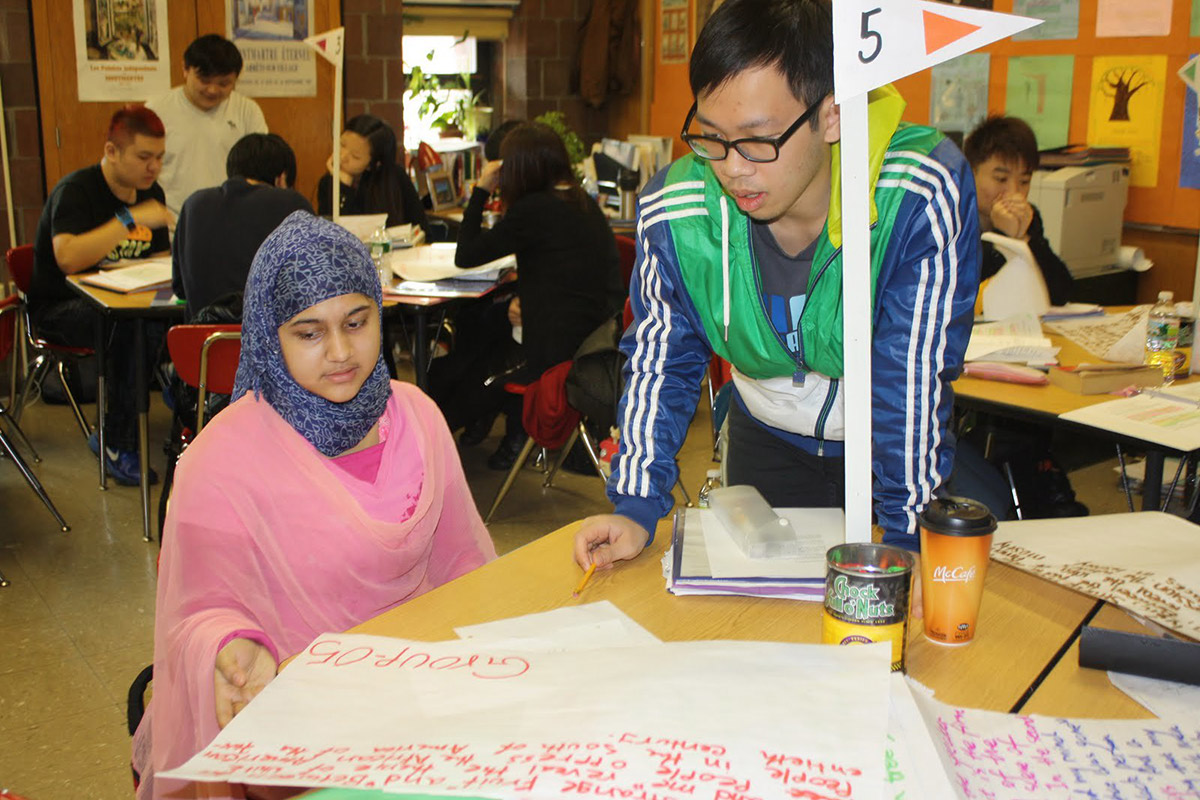
EXPLORING THE CULTURAL CONTEXT Manhattan's Lower East Side Preparatory School, which primarily serves students from immigrant families, has been a focus of Prerna Arora's work. (Photo: InsideSchools)
Prompting School Psychology to Look Within
For example, in their July paper, titled “A Three‑Tiered Model for Addressing the Mental Health Needs of Immigrant‑Origin Youth in Schools,” Prerna Arora, Assistant Professor of School Psychology, Kiara Alvarez (Harvard Medical School), Cindy Huang (TC Assistant Professor of Counseling Psychology) and Cixin Wang (University of Maryland-College Park College of Education) map out “a whole-school, systemwide approach to integrating services in schools that serve a large proportion of immigrant-origin children.”
“Instead of saying there’s only one way to do it, our model takes various evidence-based approaches and integrates them so that they can be tailored to best address different levels of need,” Arora says. “Many schools use some of these methods, but it tends to be piecemeal.”
The study was sponsored by the Society for the Study of School Psychology.
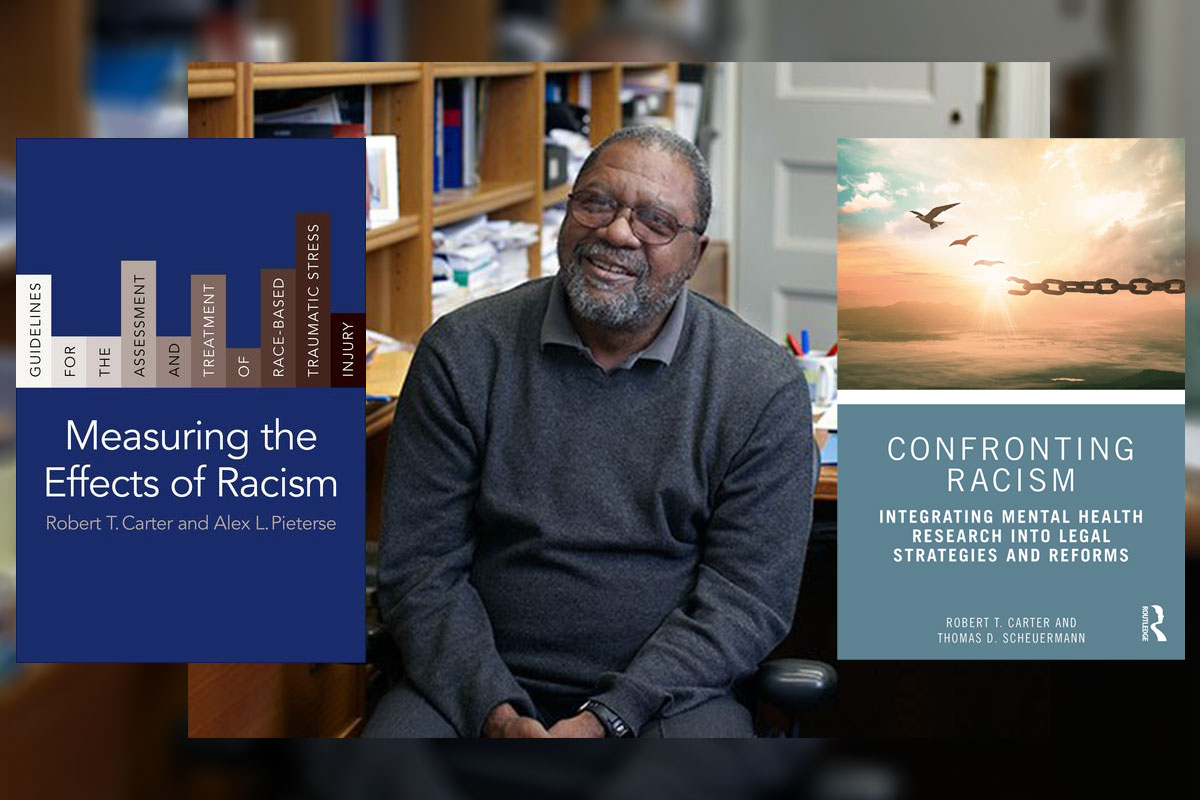
ENDURING CONTRIBUTIONS Robert T. Carter precisely describes the mental and emotional harm caused by race-based trauma and offers a new legal theory for redress. (Photo: TC Archives)
Quantifying Racism's Harms — And Mapping a Path for Redress
More than 80 percent of cases in which plaintiffs charge race-based harassment fail, with most dismissed before arguments are heard. Two new books co-authored by Robert T. Carter, Professor Emeritus of Psychology & Education, precisely describe the mental and emotional harm caused by race-based trauma and offer a new theory, adapted from personal injury law, for seeking legal redress: Measuring the Effects of Racism: Guidelines for the Assessment and Treatment of Race-Based Traumatic Stress Injury (Columbia University Press 2020), written with Alex L. Pieterse (Ph.D. ’05), a University of Albany psychologist, and Confronting Racism: Integrating Mental Health Research into Legal Strategies and Reforms (Routledge 2020), written with Thomas D. Scheuermann, a legal scholar at Oregon State University. Read more about Carter's work in the Special Report in this Annual Report.
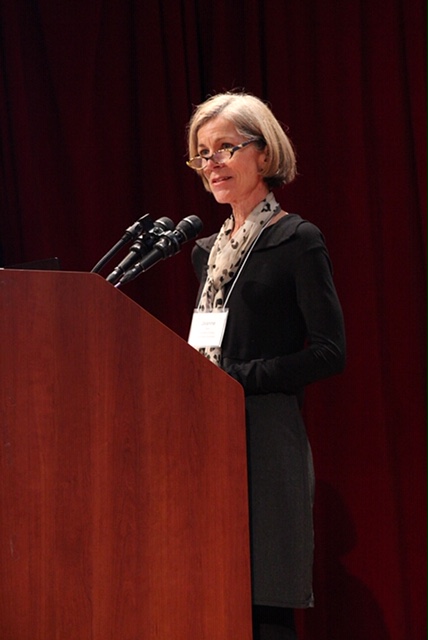
URGENT MESSAGE The recommendations by Jeanne Reid and her NCCF co-authors come at a time when many programs for infants and toddlers have closed due to COVID-19. (Photo courtesy of Jeanne Reid)
Strengthening Child Care for Infants and Toddlers
A study by researchers at TC’s National Center for Children & Families (NCCF) emphasizes the value of both family child care (FCC) and center-based programs to New York City’s diverse community of infants and toddlers and their families. The authors highlight FCCs’ unique assets, identify the challenges of promoting quality in both settings and make recommendations for support as programs close due to COVID-19. Lead author Jeanne Reid, NCCF Research Scientist, says the latter include “higher compensation, customized and accessible professional development, and managerial support that responds to the unique needs of each setting.”

PEER-TO-PEER APPROACH Lena Verdeli, Associate Professor of Psychology & Education, is hopeful that student veterans can draw on the IPC-3 method to provide mentoring to other student veterans. (Photo: TC Archives)
A Brief Form of Therapy Helps Veterans Adjust to Civilian Life
Lena Verdeli, Associate Professor of Psychology & Education, further demonstrates the effectiveness of three-session Interpersonal Counseling (IPC-3), a treatment she developed to help military veterans cope with the stresses of transitioning to civilian life. The abbreviated, three-session method aims to help veterans who are put off by the stigma surrounding mental health treatment and prefer to address here‐and‐now issues of adjustment. In a study in which 20 students who are military veterans were treated with the method, “elevated depression, distress and even PTSD symptoms improved for many," says Verdeli. “Even more importantly, those who needed more treatment were likelier to seek it out because they had had a good first experience.” Next up: a study in which student veterans will be trained to mentor other student veterans using a modified version of IPC-3. Both studies are funded by the Starbucks Corporation.
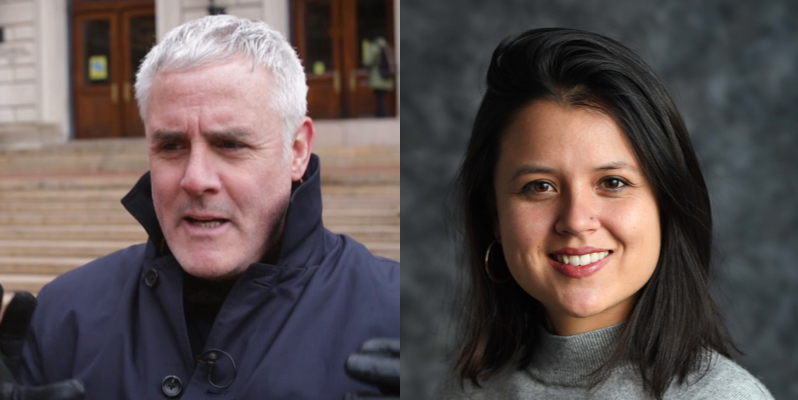
SUSTAINING THE PROJECT Peter Coleman, Professor of Psychology & Education, is the Sustaining Peace Project's Principal Investigator, and doctoral student Allegra Chen-Carrel is the Program Manager. Both are among the co-authors of the new report in American Psychologist. (Photos: Sustaining Peace Project)
Mapping Sustainable Peace
In an article in American Psychologist, TC psychologist Peter Coleman and co-authors report on the Sustaining Peace Project (SPP), which seeks to understand and map factors common to societies that have remained free of armed conflict. “We are learning that there are today and likely always have been many human groups and societies around the globe that choose peace over war,” write the researchers, who describe SPP as “a human genome project for societal peacefulness.” The report, “How to Live in Peace? Mapping the Science of Sustaining Peace: A Progress Report,” asserts that sustainable peacefulness “can be understood, studied and modeled.”

RESEARCH AND TREATMENT TC‘s Douglas Mennin and Allison Applebaum of Memorial Sloan Kettering Cancer Center are Co-Principal Investigators of a new study of a psychological therapy for "informal caregivers" of cancer patients. (Photos: TC Archives & MSK Cancer Center)
A $3.9 Million Grant to Help Cancer Patients' "Informal Caregivers"
Douglas Mennin, Professor of Clinical Psychology, is the co-recipient of a five-year, $3.9 million grant from the National Institutes of Health for a study of ERT-C, a therapy he has developed to treat severe and persistent anxiety and depression in the “informal caregivers” (ICs) of spouses, parents, adult children and others who take care of cancer patients. ICs are at even higher risk for these conditions than those whom they attend. The study will be conducted at Memorial Sloan Kettering Cancer Center and Massachusetts General Hospital. Mennin has correlated Emotional Regulation Therapy (ERT) with brain changes that predict better mental health outcomes. The study will also assess whether ERT-C improves inflammation connected to the gastric and cardiac activation that occurs during worry and whether it lowers the stress hormone cortisol.